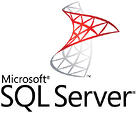 It is important for businesses of all sizes running on SQL servers to encrypt any sensitive data that they store or move. Although business size can determine specific compliance requirements that need to be met, all companies handling sensitive data are vulnerable to the major risk of failing a security audit if their data isn’t properly secured on their SQL servers.
It is important for businesses of all sizes running on SQL servers to encrypt any sensitive data that they store or move. Although business size can determine specific compliance requirements that need to be met, all companies handling sensitive data are vulnerable to the major risk of failing a security audit if their data isn’t properly secured on their SQL servers.
Here are the 5 steps you can take to ensure you pass your next audit:
1. Test applications to address vulnerabilities
Continually test and re-test your applications including payment applications and firewalls to look for vulnerabilities and address them from the start.
2. Protect information transmission
Protect data in motion by offering secure authentication features, logging application activity, using secure payment applications, and protecting wireless transmissions.
3. Protect your data
Ensure stored cardholder or PII/PHI data is protected with encryption; this information should never be stored on a server that is connected to the internet.
4. Encrypt sensitive traffic over public networks
Any transfer of data over public networks should be encrypted, whether this is cardholder information or PII/PHI data. Encrypting sensitive information guarantees that if it is intercepted that it is unusable without the encryption key.
5. Separate the encryption key from encrypted data
Separating the encryption keys from the data ensures the safety of the data in the event of an outside breach. It also allows internal separation of duties, thereby preventing unauthorized access to the the SQL Server data. This is a best practice for encryption management when dealing with sensitive information.
Taking theses steps in order to pass a security audit will proactively prevent data breaches. Even if data becomes compromised, properly encrypted data will guarantee that the data can not be used or accessed. With a comprehensive data security plan, your company can easily meet state and national compliance regulations. Using proper encryption and key management on SQL Server will make encrypting your data quick and painless, and will help ensure you pass your next audit.
Download our White Paper “Encryption Key Management with Microsoft SQL Server 2008/2012” to read more about encryption key management, meeting compliance regulations with a certified HSM, and how to utilize about TDE and EKM on your SQL server.

